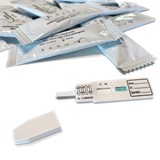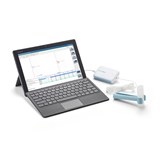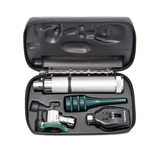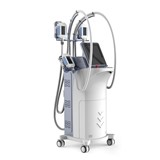That is the assertion of an analyst with research and consulting firm GlobalData.
According to Andrew S. Thompson, Ph.D., GlobalData's Senior Analyst covering In vitro Diagnostics, the new device provides a significant advantage over the current diagnostic pathway for the Ebola virus, because the test can be carried out at the point of care, using a vastly reduced sample of capillary blood.
Thompson explains: "By performing the test at the patient's bedside, the risks of exposure, through transport to a laboratory, are minimized. It needs no specialist equipment and requires very little training, which reduces the diagnostic load on the pathology laboratory, freeing up capacity for confirmatory testing.
"However, while the test was shown to be very successful in diagnosing patients admitted to hospital, and who were therefore symptomatic for Ebola, no such testing was carried out on asymptomatic patients in a non-hospital setting."
Furthermore, the analyst adds that because viruses such as Ebola generally only result in transient outbreaks in poverty-stricken regions, there is little justification to establish permanent, high-grade, molecular diagnostic testing if it comes at the cost of more pressing and basic healthcare needs.
Thompson continues: "The present Ebola outbreak is the largest known in history, but it is difficult to predict, once it subsides, if such repeated large-scale casualty events will occur again. In any case, Ebola is just one of many emerging, highly pathogenic viruses affecting Sub-Saharan Africa.
"For now, new tests such as DSTL's Ebola lateral flow assay, based on long-established and mature technology, remain the best point-of-care testing for rare and emerging infectious diseases. However, in the longer term, these are likely to be overtaken by miniaturized nucleic acid-detection platforms, which can truly bring the gold standard of testing out of the laboratory and onto the hospital ward," the analyst concludes.













